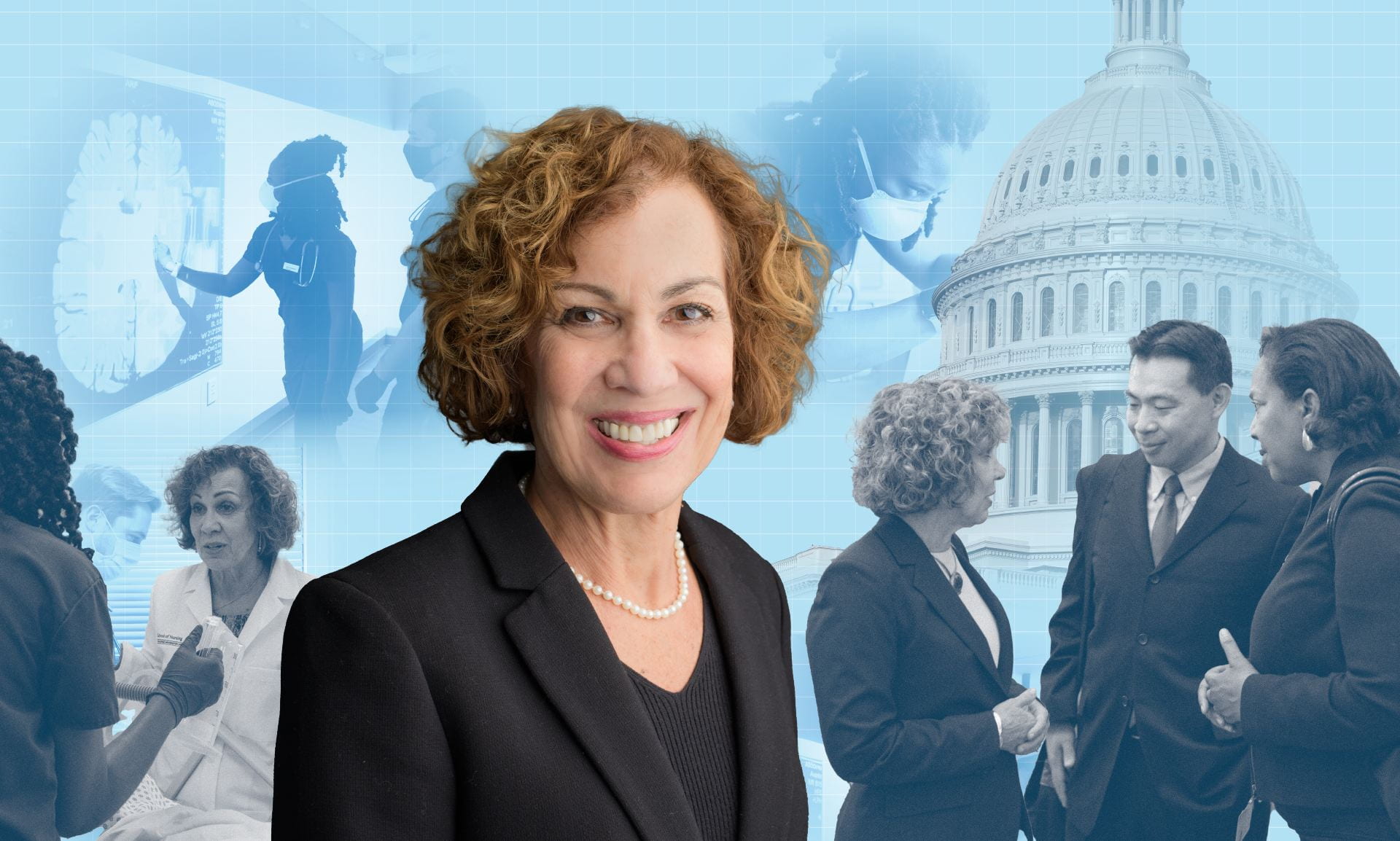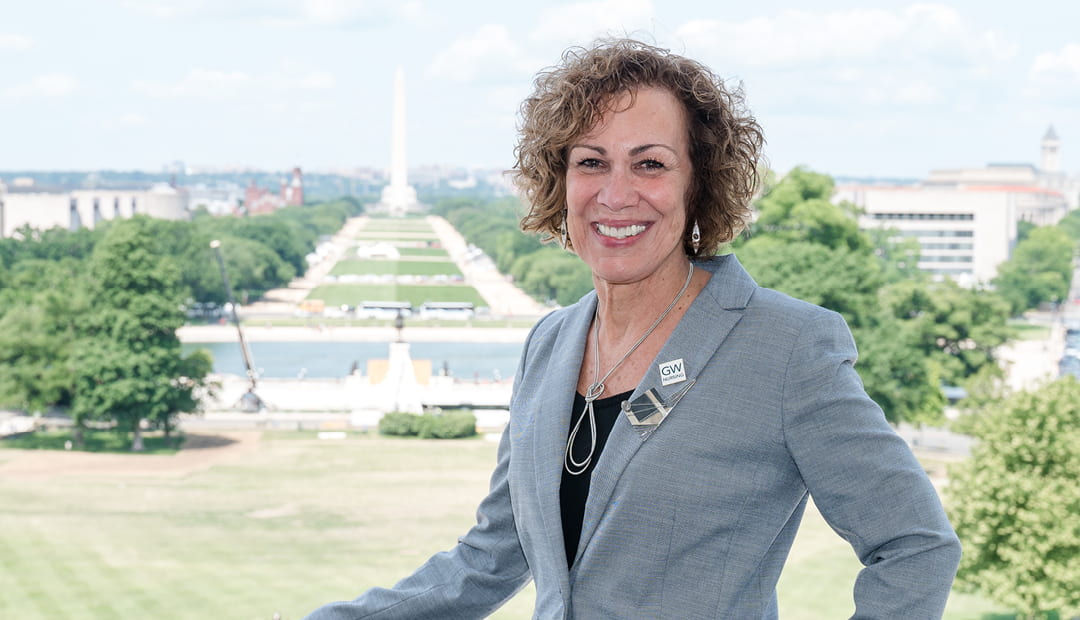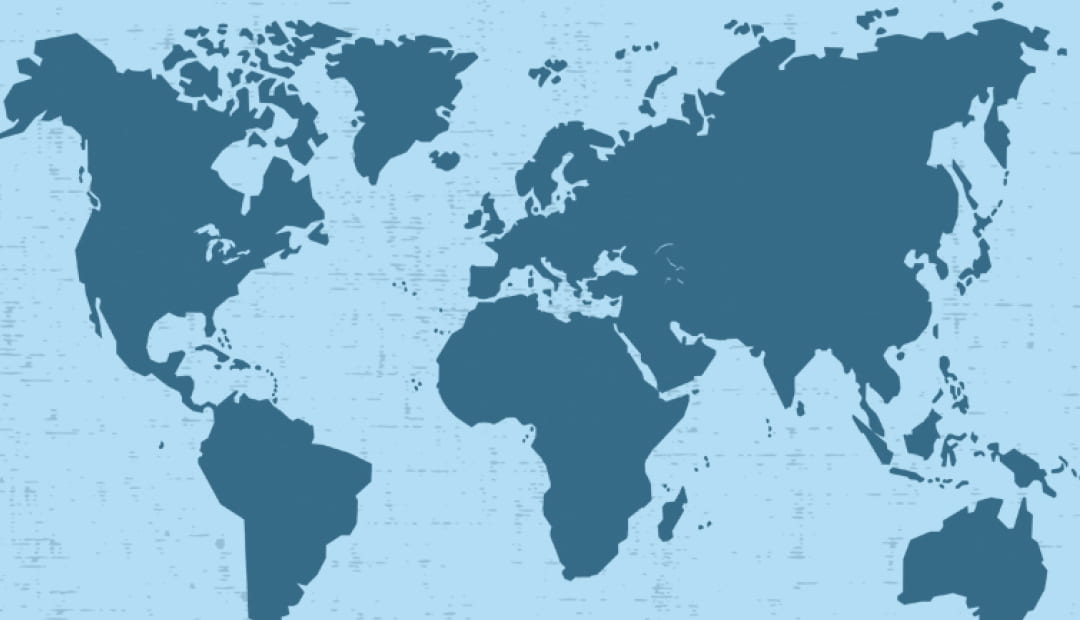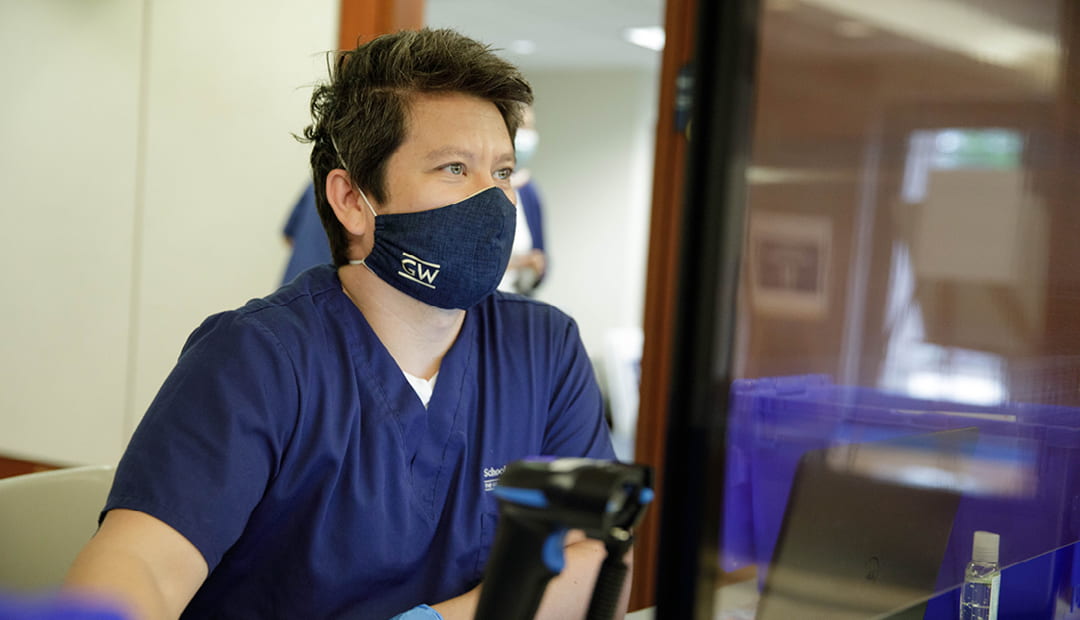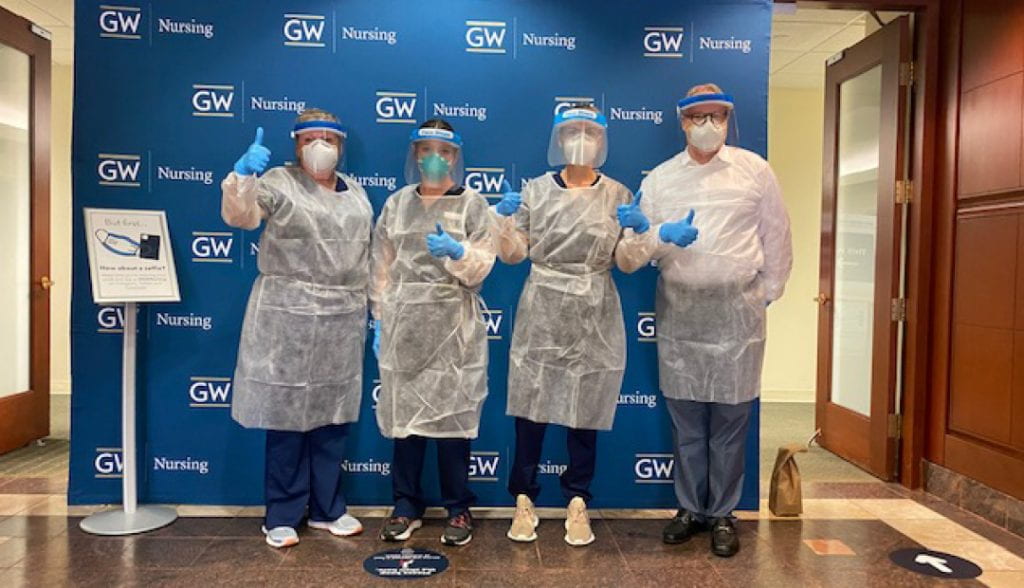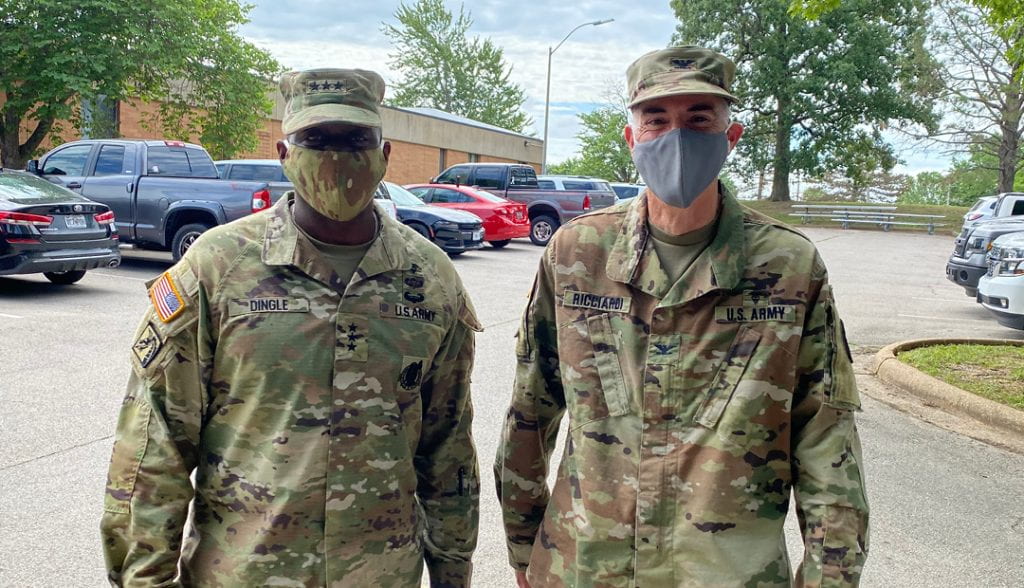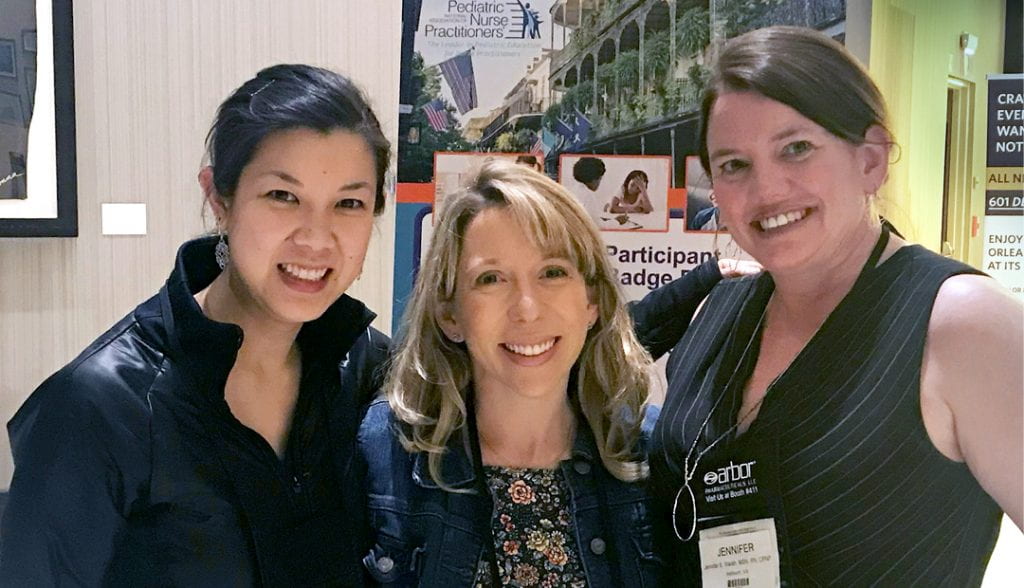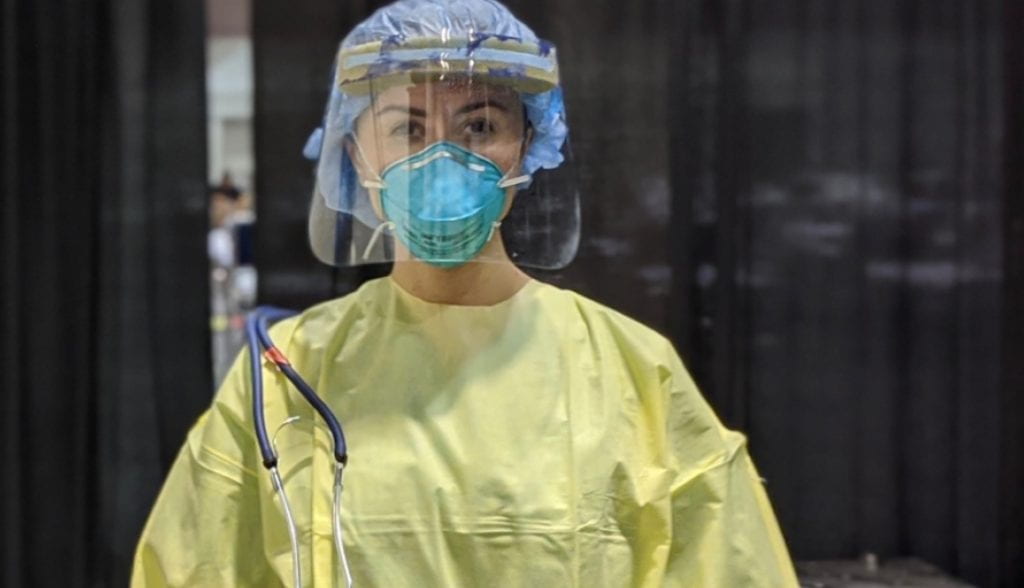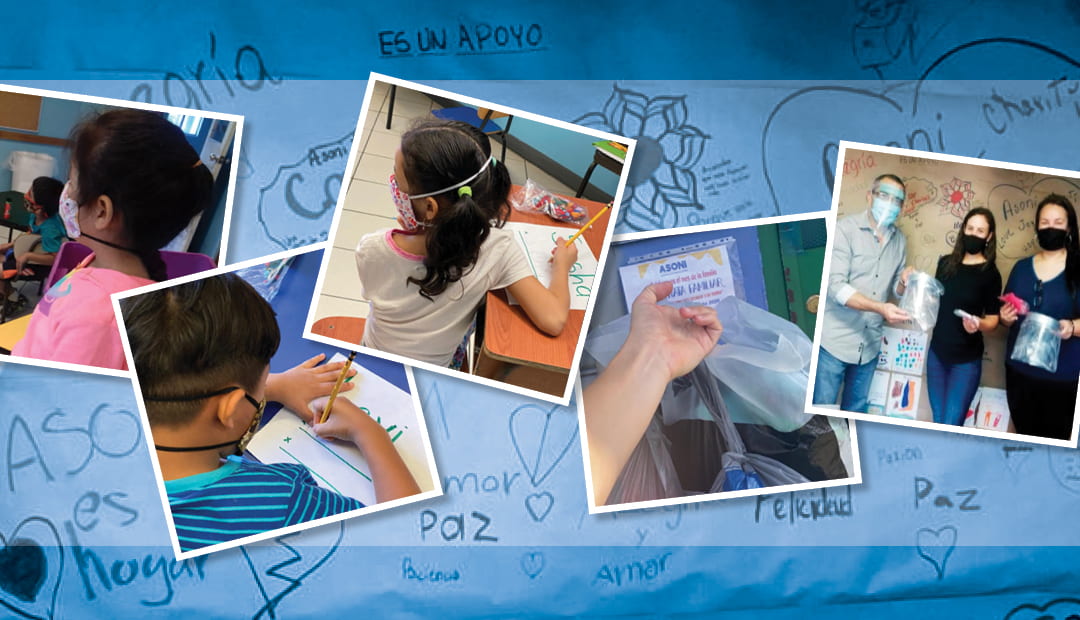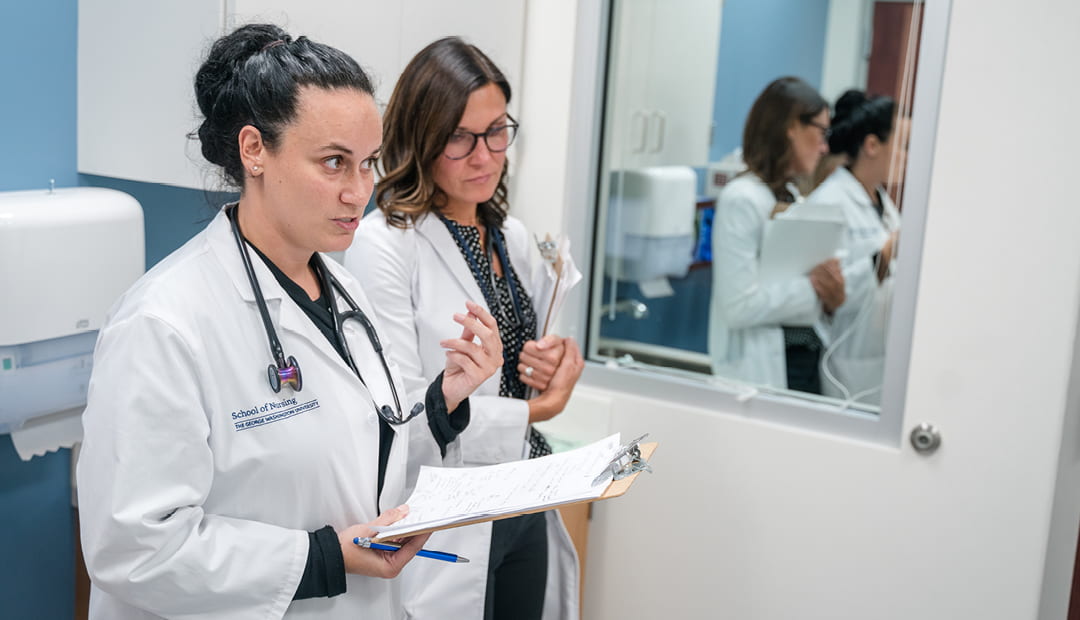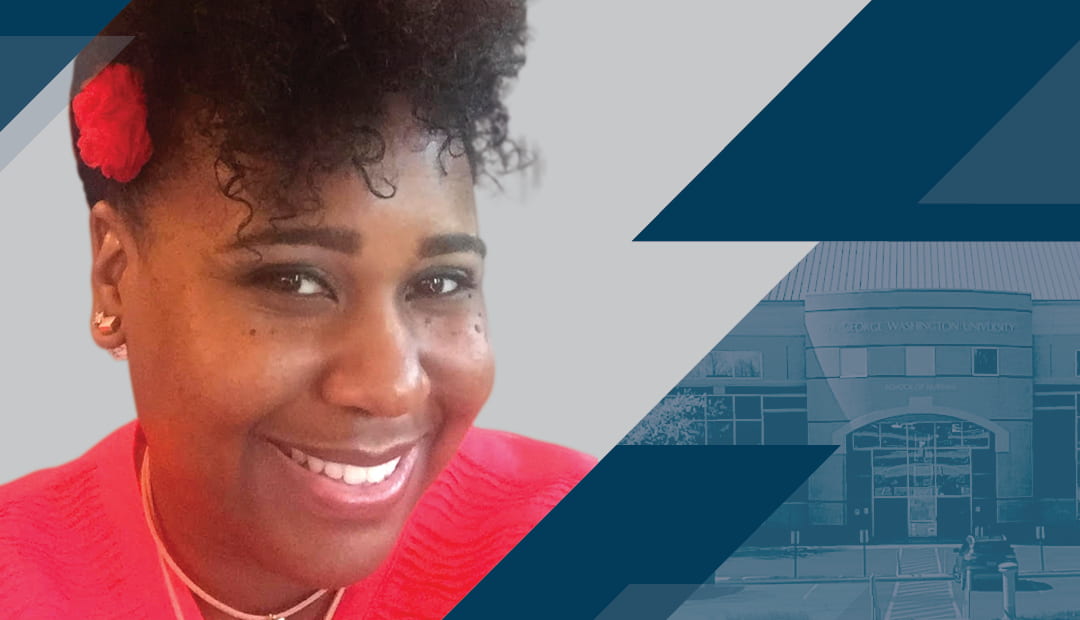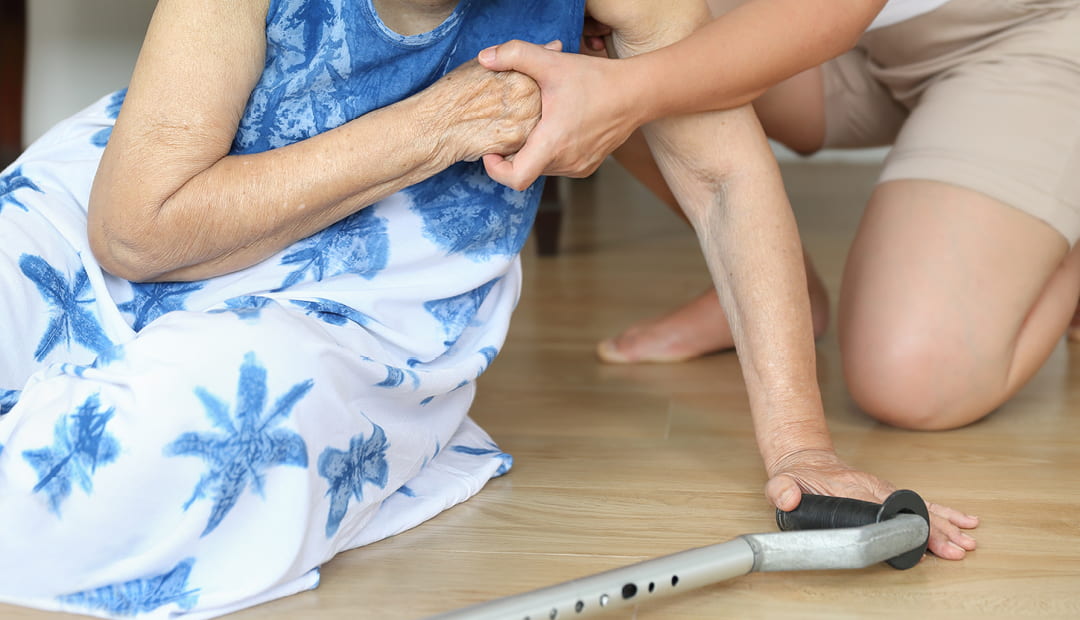Our faculty have presented at conferences, meetings and webinars throughout the world and online on topics ranging from COVID-19 to early literacy to nursing leadership and more.
B
BATCHELOR, M. (July 2020). 3 Things to Know if You Get Sick During COVID. Podcast. July 14, 2020. https://www.youtube.com/watch?v=101m0sIyOA8
BATCHELOR, M. (2020). Use of social media in building your professional brand and branding your science. University of North Carolina Chapel Hill School of Nursing, Chapel Hill, NC. [Invited, Webinar]
BATCHELOR, M. (April 2020). HealthCetera. COVID19 and older adults in nursing homes. Interview with Dr. Diana Mason, April 22, 2020.
BATCHELOR, M. (May 2020). How to talk to your older relatives about the COVID-19 pandemic – and actually have them listen! Webinar presentation at Nasdaq Employee Assistance Program. May 7, 2020.
BATCHELOR, M. & Delva, J. (2019). Social Determinants of Mental Health: Issues Touching Older Adults. Presentation at the 2019 National Academies of Sciences, Engineering, and Medicine. Washington, DC.
BATCHELOR, M. (2019). Rx4Policy: Policy, Process, Politics & The Press. Presentation at the 2019 Gerontological Nurses Association (GAPNA) Annual Conference. Las Vegas, NV.
BATCHELOR, M. (2019). Professional Brand: Using the Nuts and Bolts of Social Media. Presentation at the 2019 Gerontological Nurses Association (GAPNA) Annual Conference. Las Vegas, NV.
BATCHELOR, M., & Simpson, D. (2019). Grandfamilies. Presentation at the 2019 Gerontological Nurses Association (GAPNA) Annual Conference. Las Vegas, NV.
Yap, T., Kennerly, S., BATCHELOR-MURPHY, M., Horn, S., Barrett, R., Boss, L., & Bergstrom, N. (July 2019). Influence of Asian and Non-Asian Nursing Home Residents’ Nutritional Intake Patterns on Pressure Ulcer/ Injury Outcomes. Presentation, 29thInternational Research Congress, sponsored by Sigma Theta Tau International, Calgary, Alberta, Canada, July 25-29, 2019. https://bit.ly/2KlgIaj
BATCHELOR-MURPHY, M. (August 2019). Presented three breakout sessions at the 2019 Quality in Long-Term Care Conference. The title of the sessions was Supporting Nutritional Outcomes in Dementia through the Interdisciplinary Team and aimed to teach caregivers handfeeding strategies for improving meal intake in older adults with dementia. Georgetown, TX. August 12-13th, 2019
Ward, D. & BATCHELOR-MURPHY, M. (October 2019). From Training to Competency: Creating Efficiencies to Ensure Excellence Achieve Business Goals. Presentation, American Health Care Association, Orlando, FL, October 13-16, 2019.
BATCHELOR-MURPHY, M. (2019). Bettering Clinical Care for Alzheimer’s Disease. Keynote Address at Maine Alzheimer’s Summit. Point Lookout Resort, Northport, ME
BATCHELOR-MURPHY, M. (2019). Supporting Nutritional Outcomes in Dementia Through the Interdisciplinary Team. Presentation at the 2019 Texas Geriatric Symposium: Taking the Next Steps. Advancing Nursing in Long-Term Care. Austin, TX.
Carmody, J., & BATCHELOR-MURPHY, M. (2019). Age-Friendly Health Systems. Presentation at the 2019 Health and Aging Policy Fellows Alumni Network Meeting. Washington, DC.
BATCHELOR-MURPHY, M. (2019). Optimizing Intake in Alzheimer’s Disease: Supportive Handfeeding Strategies that Work. National webinar for NICHE Webinar: Nurses Improving Care for Health systems Elders.
BATCHELOR-MURPHY, M.., Shattell, M., & Darmoc, R. (2019). Influencing the Conversation, One Tweet at the Time. Presentation at the 2019 Health and Aging Policy Fellows Annual Communications Workshop. Washington, DC.
C
COX, C.W. (November 2019). Undergraduate Military Nursing Students in the Civilian Classroom: An Integrative Review. Poster Presentation. Sigma Theta Tau International’s 45th Biennial Convention, National Harbor, MD.
COX, C.W. (November 2019). Facilitating the Success of Nursing Faculty via the Onboarding Process. Poster Presentation. Sigma Theta Tau International’s 45th Biennial Convention, National Harbor, MD.
COX, C.W., WIERSMA, G., PEARCE, M., & Spatola, A. (September 2019). Creating a Culture of Success: Transitioning Military Bachelor of Science in Nursing Students to the Civilian Classroom and Beyond. Panel Presentation. NLN Education Summit, National Harbor, MD.
DARCY-MAHONEY, A. (January 2020). Presented her research: Improving Hispanic children’s early language environments through nurse home visiting at the Home Visiting Applied Research Collaborative Meeting. January 29, 2020. Washington, DC.
Baralt, M., Darcy–Mahoney, A ., Thota, A., Myland, C., Dargam, V., Rincon, L., Leon, V., Jung, R. (October 2019). Bilingualism enhances preterm-born children’s executive function: an fNIRS study. 5th Annual Florida Psycholinguistics Meeting. Oct. 5, 2019. University of Miami, Miami, FL.
DARCY-MAHONEY, A., Baralt, M., Thora, A., Myland, C., Dargam, V., Rincon, L., Leon, V., Jung, R. (October 2019). The Neural Recruitment of Executive Function in Monolingual versus Bilingual Preterm-Born Children: An fNIRS Study. Council on Advancement in Nursing Science Advanced Methods Conference: The Expanding Science of Sensor Technology in Research. Poster. October 2019. Washington, DC.
Faunda, M., Austin, E., DARCY-MAHONEY, A. (October 2019). Enhancing Early Literacy & Language coaching with Nurse Family Partnership. Council on Advancement in Nursing Science Advanced Methods Conference: The Expanding Science of Sensor Technology in Research. Poster. October 2019. Washington, DC.
DAVIS, S. (October 2019). The social determinants of a heart healthy community: A participatory action research project. The American Academy of Nursing, October 24th – 25th, Washington, D.C.
DAVIS, S. (September 2019). Understanding implicit bias. The 2019 National League of Nursing Education Summit. September 26 – 28, Fort Washington, MD.
DAWN, K. and PULCINI, P. (November 2019). Becoming a Community Engaged Department in an Academic University. Presentation at the Biannual Sigma Theta Tau Convention. National Habor, Washington, DC.
DAWN, K. (November 2019). A Nurse-led Community Partnership Initiative to Identify and Reduce Hypertension in the Mukono district, Uganda. Presentation at the Biannual Sigma Theta Tau Convention. National Habor, Washington, DC.
DOWLING, N.M. et al. (November 2019). Measuring Literacy of Dementia Prevention and Treatment Among Older LGBT Adults. 2019 Gerontological Society of America: Annual Scientific Meeting. Austin, Texas.
DRENKARD, K. (October 2019). Creating a Culture of Patient and Family Engagement. Central Connecticut State University, Hartford, CT.
DRENKARD, K. (October 2019). Caring Science Health Care Organization Accreditation Standards: Become an Accredited Caring Science Organization. Watson Caring Science Consortium, San Francisco, CA.
DRENKARD, K. (November 2019). Every Nurse is a Leader. University of Missouri Nursing Symposium, Columbia, MO.
DRENKARD, K. (November 2019). Show me the money: The Return on Investment for Professional Development in Action. Kaiser Permanente Southern California Nurse Educators Conference, Pasadena, CA.
E
EL-BANNA, M. & KESTEN, K (March 2020). Nurse Practitioner (NP) Residency/Fellowship Programs: Innovation in Nursing Education. Presentation at the 32nd Annual Eastern Nursing Research Society Scientific Sessions, Boston, MA.
EL-BANNA, M., Whitlow, M., & MCNELIS, A.M. (November 2019). Connecting Pharmacology Concepts through Team Based Collaborative Learning. Sigma 45th Biennial Convention. Washington, DC. November 16-20, 2019.
EL-BANNA, M., Whitlow, M., & MCNELIS, A.M. (September 2019). Team-Based Learning: A Strategy to Foster Active Learning and Improve Exam Scores. The 2019 George Washington University Teaching Day, The George Washington University, Washington, DC. September 27, 2019.
F
Daniels, A., FARINA, C.L., and Sittner, B (January 2020) Podium presentation at the International Meeting for Simulation In Healthcare, “Enhance Security and Confidentiality of Simulation Experiences: Safeguarding Our Learners, January 20, 2020, San Diego, CA
Schneidereith, T., Cowperthwait, A., and FARINA, C.L. (January 2020) Podium Presentation at the International Meeting for Simulation In Healthcare, “Start A Business: Lessons Learned from Simulation Entrepreneurs, January 22, 2020, San Diego, CA
FARINA, C.L., and Schneidereith, T., (November 2019). Podium presentation at the Biennial Sigma Theta Tau Convention, “Ways to Maximize Simulations: Outsourcing.” National Harbor, November 18, 2019. Washington, DC.
FARINA, C.L., (July 2019) Podium Presentation at Virginia State Simulation Alliance Conference, “Concept-Based Debriefing: Making Connections. July 30, 2019. Williamsburg, VA
G
GLENN, A. (March 2020). Instruction and Empowerment of Nursing Students in Participatory Action Research: The Heart Healthy Photovoice Project, Sigma Theta Tau, National Education and Research Conference 2020, Washington DC, (accepted for podium presentation) https://www.sigmarepository.org/nerc-2020/ [conference canceled due to COVID 19]
GLENN, A. (November 2019) Podium presentation at the Sigma Theta Tau, 45th Biennial Convention. Becoming a Community Engaged Department in an Academic University. Washington, DC
GLENN, A. (August 2019) Podium presentation at the 14th Annual International Family Nurses Association. The Social Determinants of a Heart Healthy Community: A Participatory Action Project with Middle School Students. Washington, DC.
GRIFFITH, K., Crandall, K. (December 2019). Responsible Conduct of Research Monthly Series: Collaborative Research. Office of the Vice President for Research, The George Washington University. December 17, 2019. Washington, DC.
GRIFFITH, K. (July, 2019). Incorporating non-pharmacological therapies into pain care for older Veterans. Veterans Administration Geriatric Research and Education Clinical Centers National Webinar, Baltimore, MD.
J
JEFFRIES, P. (October 2019). Panelist, Simulation in an Academic Setting. Columbia Innovation Summit, October 2019. New York City, NY.
K
KESTEN, K. & EL-BANNA, M. (August 2019). Current Best Evidence about Nurse Practitioner Residency/Fellowship Programs. The 12th National Doctors of Nursing Practice Conference August 7-9, 2019. Washington, DC.
Willett, T., & KESTEN, K. (March 2020). Nurse’s Perception of Safety Culture and Patient Safety with the Handoff Communication Process between Pre-op and Operating Room Nurses Post Intervention. Presentation at the AORN Global Surgical Conference & Expo 2020, March 28 – April 1, 2020. Anaheim, CA
Junker, C., KESTEN, K., & Lay, C. (March 2020). Time for Quiet: Reducing Nighttime Interruptions in the ICU (TURN IN-ICU). Presentation at the 32nd Annual Eastern Nursing Research Society Scientific Sessions, Boston, MA.
Taft, S., KESTEN, K., & EL-BANNA, M. (November 2019). One Size Does Not Fit All: Structuring High Quality Learning Experiences: Differentiating Class Enrollment Sizes in Online Nursing Courses. Association of Colleges of Nursing (AACN) Faculty Development Conference, Orlando,FL. November 20-21, 2019.
KESTEN, K., & Anderson, K., White, K., & Fall-Dickson, J. (August 2019). Mentoring Doctor of Nursing Practice Scholarly Projects, 12th Annual National Doctor of Nursing Practice Conference, Washington, DC
Conrad, D., Burson, R., Moran, K., KESTEN, K., Corrigan, C. & Pohl, E. (July 2019). A Global Team Approach to Advancing the Practice Doctorate in Nursing, The International Network for Doctoral Education in Nursing, Calgary, Canada.
KNESTRICK, J.M. & Edwards-Tuttle, C. (October 2019). Ethics for leaders in Healthcare. Podium Presentation, AANP Fall Conference. October 10-13, 2019. LasVegas NV.
KNESTRICK, J.M. & Wilbur, V. (October 2019). Interdisciplinary Care Conference from a Primary Care Perspective. Poduim Presentation, AANP Fall Conference. October 10-13, 2019. Las Vegas, NV.
Pitts, C, Begley, MN, Padden, D & KNESTRICK, J.M. (2019). A relationship and communication checklist for faculty and preceptor to enhance the nurse practitioner student clinical experience, NONPF webinar.
KURTZMAN, E.T. (October 2019). Transforming health, driving policy: Confessions of an RWJF Health Policy Fellow. Podium presentation at AAN Transforming Health, Driving Policy Conference, Quality Expert Panel, October 26, 2016. Washington, DC.
KURTZMAN, E.T. (July 2020). Bridging the Gap: From Research to Policy. National Library of Medicine (NLM) monthly blog: Musings from the Mezzanine. July 7, 2020.
L
LANG, C. and MURPHY, J. (August 2019). International Community Engagement as a Construct for Teaching Social Determinants of Health. Oral/Podium Presentation at the 14th International Family Nursing Conference. Washington, DC. August 13 – 16, 2019.
LE, D., Juon, H.S., Park, V.M., & Hong, A.Y. (April 2020). Liver cancer prevention among Asian Americans: What we’ve known and what else we can do? Society of Behavioral Medicine 41st Annual Meeting and Scientific Sessions (Accelerating Our Science: Finding Innovative Solutions for Tomorrow’s Health Challenges), San Francisco, CA.
LE, D. (September 2019). You can’t escape tobacco; you have to change your environment: Perceived barriers to and recommendations for cessation among polytobacco using urban young adults in Baltimore, Maryland. Poster presentation at the 12th AACR Conference on The Science of Cancer Health Disparities. San Francisco, CA.
Lee, A., Aldous, A., Anderson, E, & LUPU, D. (March 2020). Provider Perceptions of the MY WAY Intervention: Implementing Advanced Care Planning in CKD Clinics. Poster presentation at the National Kidney Foundation. March 25-28, 2020. New Orleans, LA. Conference cancelled due to pandemic.
Aldous, A., Anderson, E., Schell, J., Sherman, M., Groninger, H., Aiello, J., & LUPU, D. (March 2020). Impact of Advance Care Planning Coaching for Patients with Chronic Kidney Disease: Results from the My Way Randomized Clinical Trial. Poster presentation at the National Kidney Foundation. March 25-28, 2020. New Orleans, LA. Conference cancelled due to pandemic.
Bursic, A., LUPU, D. , Aldous, A., & Schell, J. (March 2020). A Retrospective Analysis of Advance Care Planning Outcomes among Older Patients with Chronic Kidney Disease. Poster presentation at the National Kidney Foundation. March 25-28, 2020. New Orleans, LA. Conference cancelled due to pandemic.
LUPU, D. , Aldous, A., Anderson, E., Schell, J., & Groninger, H. (March 2020). Impact of Advance Care Planning Coaching for Patients with Chronic Kidney Disease: Results from the MY WAY Randomized Clinical Trial. Poster presentation at the AAHPM State of the Science. March 21, 2020. San Diego, CA. Conference cancelled due to pandemic.
Aldous, A., Klawson, E., Loughlin, S., & LUPU, D. (March 2020). Measuring Engagement in Advance Care Planning: Comparison of a Validated Survey with Chart Review in Kidney Patients. Poster presentation at the AAHPM State of the Science. March 21, 2020. San Diego, CA. Conference cancelled due to pandemic.
Moss, A., LUPU, D. , & Harbert, G. (March 2020). Closing the Gap on the Palliative Care Needs of Patients with Kidney Disease: Innovations from the Pathways Project. Oral presentation at the AAHPM/HPNA Annual Assembly of Hospice and Palliative Care. March 19, 2020. San Diego, CA. Conference cancelled due to pandemic.
Aldous, A., Klawson, E., Loughlin, S., & LUPU, D. (March 2020). Measuring Engagement in Advance Care Planning: Comparison of a Validated Survey with Chart Review in Kidney Patients. Poster presentation at the AAHPM/HPNA Annual Assembly of Hospice and Palliative Care. March 19, 2020. San Diego, CA. Conference cancelled due to pandemic.
LUPU, D. , Aldous, A., Anderson, E., Schell, J., & Groninger, H. (March 2020). Impact of Advance Care Planning Coaching for Patients with Chronic Kidney Disease: Results from the MY WAY Randomized Clinical Trial. Presentation at the AAHPM/HPNA Annual Assembly of Hospice and Palliative Care. March 19, 2020. San Diego, CA. Conference cancelled due to pandemic.
Anderson, E., LUPU, D., Kelemen, A., Lee, A., Aldous, A., & Loughlin, S. (March 2020). Implications of the MY WAY Randomized Clinical Trial for building bridges between palliative care and nephrology. Poster presentation at the Social Work Hospice & Palliative Care Network (SWHPN). March 15-17, 2020. San Diego, CA. Conference canceled due to pandemic.
LUPU, D. & Harbert, G. (October 2019). Presented at the 2019 National Renal Administrators Association Conference. “Expanding the Menu Choices:Person-Centered care for seriously ill patients on dialysis.” Huntington Beach, CA.
M
MARCHI, N., WAVELET, J., DAVIS, S. (September 2019). Developing Patient Safety teamwork To Address Lateral Violence Using Clifton Strengths Finder Tool and Cognitive Rehearsal. The 2019 National League of Nursing Education Summit. September 26 – 28, Fort Washington, MD.
MULLINS, B. (May 2020) presented live webinar for Assessment Technologies Institute titled “Nursing at the Front Line during the COVID-19 Pandemic.”
P
PULCINI, J., LANG, C., DAWN, K., LESLIE, M., DAVIS, S., PERICAK, A. (November 2019). Becoming a Community Engaged Department in an academic university. Presentation at the Biennial Sigma Theta Tau Convention. November 17, 2019. National Harbor, MD.
R
RICCIARDI, R. (July 2020). Infusing joy during a global pandemic. Presentation at the Philippine Nurses Association of America (PNAA) 41st Annual & 1st Virtual Convention. July 3, 2020.
RICCIARDI, R. (June 2020). Nursing: A pathway to empowerment of women. Strengthening and focusing health systems around primary health care. Presentation at the United Nations Commission on the Status of Women. June 23, 2020. Virtual presentation due to COVID-19.
RICCIARDI, R. (May 2020). President-Elect STT, delivered keynote address at the Sigma 5th European Regional Conference in Coimbra, Portugal. “Influencing Global Health: Reflections on the past and plans for the future.” May 28, 2020.
RICCIARDI, R., (March 2020). STT President, delivered keynote address at the Tau Alpha Meeting. The title of the presentation is: Sigma President’s Biennial Call to Action: Infuse Joy. 2020 Tau Alpha Meeting on March 4, 2020. Mexico.
RICCIARDI, R. (January 2020). Sigma Theta Tau International Honor Society of Nursing Growth and Impact in Europe. Presentation at the 2020 European Academy of Nursing Science (EANS) Meeting. University of Milan, Italy. January 28 – February 2, 2020.
RICCIARDI, R. (December 2019). Evaluating new and established strategies for implementing large-scale, system level interventions. Presentation at the 12th Annual Conference on the Science of Dissemination and Implementation in Health. Washington, DC.
RICCIARDI, R. (November 2019). Keynote Speaker Sigma Theta Tau International (Sigma) Presidential Call to Action: Infuse Joy. Sigma Theta Tau International 45th Biennial Convention, November 16-20, 2019. Washington, DC.
RICCIARDI, R. (November 2019). Development, Integration and Implementation of the Advanced Practice Nurse in the Kingdom of Saudi Arabia. Panel presentation at King Faisal Specialist Hospital and Research Center. November 3, 2019. Jeddah, Saudi Arabia.
RICCIARDI, R. (October 2019). President-Elect STT, presented at the Iota Alpha Chapter Chartering at William Paterson University. The Role and Value of Professional Organizations in Lifelong Professional Development. October 26, 2019. Wayne, NJ.
RICCIARDI, R. (October 2019). President-Elect STT, presented at the Omega Nu Chapter Chartering at Long Island University. Sigma Theta Tau International Honor Society of Nursing: Supporting the Work of Nurses. October 15, 2019. Brooklyn, NY.
RICCIARDI, R. (October 2019). Keynote Speaker at the Tristate Consortium meeting. “Driving Change: Rethinking the APRN’s Role in Reshaping Healthcare.” University of Delaware.
RICCIARDI, R. (October 2019). Presented at the Nurse-Led Care Conference. “Value-based Care in Ambulatory Setting.” Nashville, TN.
RICCIARDI, R. (September 2019). Cost benefit analysis. Webinar presentation for the Duke-Johnson & Johnson Nurse Leadership Fellows.
RICCIARDI, R. (August 2019). Opportunity Awaits: Are We Ready to be Disruptive Innovators in Healthcare? Presentation at the DNP National Conference. Washington, DC.
RILKO, L., & VENZKE, M. (April 2020). Managing Nursing Assessment Remotely: NLN Webinar Series “Taking Aim: Remote Teaching Challenges. Webinar presentation for National League of Nursing. April 9, 2020.
RILKO, L., & Venzke, M. (April 2020). A Glimpse of the Future: NP Student’s Attitudes on Virtual Reality as a Tool for Learning. Poster presentation at the National Organization of Nurse Practitioner Faculties (NONPF) 46th meeting. Virtual due to COVID-19
Washington, C., ROBERSON, A.J., Mitrani, V (March 2020). Living with a Mother with a Mental Disorder: Self-Management of Adolescents as a Protective Factor. Podium presentation at the Southern Nurses Research Society Annual Conference. March 18 – 20, 2020. New Orleans, LA.
Giorgianni, S.J., Brott, A., ROBERSON, A.J. (2019). Patient-Centered Outcomes Research Institute (PCORI). Conference Summer: Behavioral Health Aspects of Depression and Anxiety in the American Male – An Expert Panel Report from Men’s Health Network. https://www.pcori.org/sites/default/files/Mens-Health-Network-Conference-Summary.pdf
S
SCHWINDT, R., Alaniz, J., & Law, S., (March 2020) Culture, Competency and Compassion for LGBTQ Patients presentation at the American Pharmacists Association Annual Meeting & Exposition. National Harbor, MD.
SCHWINDT, R. (December 2019). Top Ten Things You Need to Know About Gender Affirmative Care. Annual Midwestern University Health Sciences Conference. Downers Grove, IL.
SCHWINDT, R. (August 2019). Caring for LGBTQ Patients: Methods for Improving Cultural Competence. American Pharmacists Association. Webinar.
T
TOULOUSE, C., & Fine, P. (July 2019) Making the Connection: Enhancing Connectedness within the Learning Triad of Student, Course Content, and Faculty. Poster presentation at the Virginia Association of Doctors of Nursing Practice Podium Presentation, Winchester, VA.
W
WALLINGTON, S.F., Kelly, K. (June 2020). Assessing HPV Knowledge and Attitudes Among Black Adolescent Males in the District of Columbia, Session 5A: Health Literacy & Health Equity, Academy of Healthcare Communication, Virtual Research Forum, Zoom poster presentation, June 27. 2020, Washington, D.C.
WALLINGTON, S.F., Lindsay, A.C., Greaney, M.L., Rabello, L.M., and Kim, Y.Y. (March 2020). Brazilian Immigrant Parents’ Awareness of HPV and the HPV Vaccine and Interest in Participating in Future HPV-Related Cancer Prevention Study: An Exploratory Cross-Sectional Study Conducted in the USA, 33rd International Papillomavirus Conference, March 23-27, 2020, Barcelona, Spain. (adapted to Zoom to due to COVID pandemic).
WALLINGTON, S.F. and Felder, T. (November 2019). Cervical Screening and Prevention. Session: Black Women, Cervical Cancer and What You Need to Know. 6th Annual Healthy Churches 2020 National Conference. Balm in Gilead, INC.: Healing through Prayer, Education, Advocacy, and Service. November 19 – 22, 2019. Charlotte, NC.
WALLINGTON, S.F. (October 2019). The Wicked Problem of Health Disparities, Human Rights Forum at Augsburg University, Session: Equity, Climate Change, and the Human Right to Healthcare. October 29, 2019. Minneapolis, MN
WALLINGTON, S.F. (September 2019). HPV and Cervivor Cancer. Cervivor School 2019: Survivor Advocacy Training. September 26-28, 2019. Chicago, IL.
Whitlow, M., EL-BANNA, M., & MCNELIS, A.M. (September 2019). Active Engagement in the Classroom: Using Team-Based Learning (TBL) to Improve Student Learning of Pharmacology. The 2019 National League of Nursing Education Summit. Washington, DC. September 26-28, 2019.
WHITT, K. & Ray, G. (March 2020). Do family health history interviews influence college student’s perceived risk for disease and intent to engage in preventive behaviors? 2020 American College of Medical Genetics (ACMG) Annual Clinical Genetics Meeting, Digital Edition. March 25, 2020. https://www.acmgeducation.net/Users/Catalog.aspx
Y
YANG, Y.T. (November 2019). Empirical evidence of nonmedical exemptions’ contagiousness. Podium presentation at the APHA’s 2019 Annual Meeting and Expo. Philadelphia, PA. November 2-6, 2019.
Z
ZHOU, Q., GRIFFITH, K., & WALLINGTON, S. (November 2019). Body weight and general health among female breast cancer survivors. Podium Presentation, Sigma Theta Tau International 45th Biennial Convention, November 16-20, 2019. Washington, DC.
Strockbine, V.L., Gehrie, E., ZHOU, Q., & Guzzetta (November 2019). Reducing Unnecessary Phlebotomy Testing Using a Clinical Decision Support System. Poster, the 2019 Architecture of High Value Health Care National Conference (HVPAA). Baltimore, MD.
Jeffries, C., Guzzetta, C., & ZHOU, Q. (July, 2019). A Study of Bonding and Bridging Among Nurse Teleworkers. Poster presentation, Sigma’s 30th International Nursing Research Congress. Calgary, Canada.

